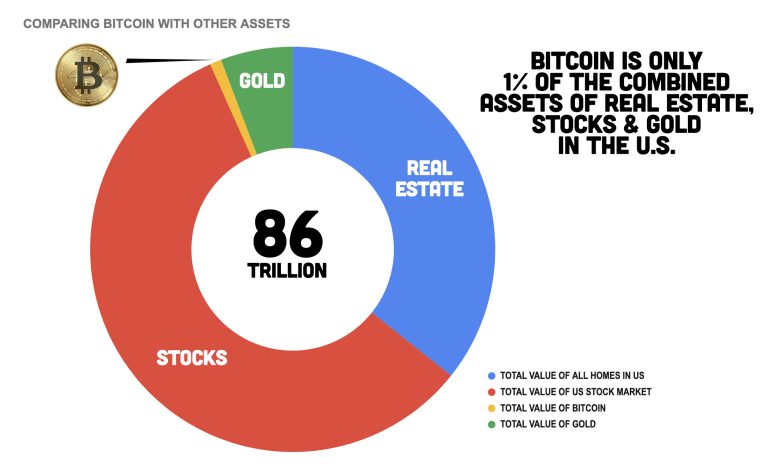Crypto and Real Estate: Trends and Opportunities

- Exploring the intersection of cryptocurrency and real estate
- The rise of blockchain technology in the real estate industry
- Opportunities for investors in the crypto real estate market
- Challenges and risks of using cryptocurrency in real estate transactions
- Innovative ways blockchain is transforming the property market
- The future of real estate: How crypto is reshaping the industry
Exploring the intersection of cryptocurrency and real estate
The intersection of cryptocurrency and real estate presents a unique opportunity for investors looking to diversify their portfolios. With the rise of digital currencies like Bitcoin and Ethereum, more people are exploring the potential of using cryptocurrency to buy and sell real estate properties. This trend is driven by the desire for greater financial privacy and security, as well as the potential for higher returns on investment.
One of the key advantages of using cryptocurrency in real estate transactions is the speed and efficiency it offers. Traditional real estate transactions can be slow and cumbersome, involving multiple parties and lengthy paperwork. Cryptocurrency transactions, on the other hand, can be completed in a matter of minutes, with no need for intermediaries or third parties. This can streamline the buying and selling process, making it more convenient for both buyers and sellers.
Another benefit of using cryptocurrency in real estate is the potential for lower transaction costs. Traditional real estate transactions often involve high fees and commissions, which can eat into profits for both buyers and sellers. By using cryptocurrency, investors can avoid many of these fees, saving money in the long run. Additionally, the decentralized nature of cryptocurrency means that transactions can be conducted without the need for banks or other financial institutions, further reducing costs.
Overall, the intersection of cryptocurrency and real estate offers exciting opportunities for investors looking to capitalize on the growing popularity of digital currencies. By leveraging the speed, efficiency, and cost savings of cryptocurrency transactions, investors can take advantage of a new and innovative way to buy and sell real estate properties. As the market continues to evolve, it will be interesting to see how cryptocurrency continues to shape the future of the real estate industry.
The rise of blockchain technology in the real estate industry
Blockchain technology has been making significant strides in the real estate industry, revolutionizing the way transactions are conducted and recorded. This innovative technology offers increased security, transparency, and efficiency in property transactions, making it an attractive option for both buyers and sellers.
One of the key benefits of blockchain in real estate is its ability to streamline the process of buying and selling properties. By using smart contracts, parties can automate and execute transactions without the need for intermediaries, reducing costs and speeding up the process. This not only saves time but also minimizes the risk of fraud and errors.
Moreover, blockchain technology enables the creation of digital property records that are secure, tamper-proof, and easily accessible. This eliminates the need for paper-based documentation and reduces the chances of disputes over ownership or title deeds. With all relevant information stored on a decentralized ledger, parties can verify the authenticity of property details in real-time.
Another advantage of blockchain in real estate is its potential to increase liquidity in the market. Through tokenization, properties can be divided into digital shares, allowing investors to buy and sell fractions of real estate assets. This opens up new opportunities for smaller investors to participate in the real estate market and diversify their portfolios.
In conclusion, the rise of blockchain technology in the real estate industry is transforming the way properties are bought, sold, and managed. With its enhanced security, efficiency, and transparency, blockchain is poised to revolutionize the real estate market and create new opportunities for investors and stakeholders alike.
Opportunities for investors in the crypto real estate market
Investors looking for opportunities in the real estate market can explore the potential of the crypto real estate market. This emerging sector offers unique advantages for investors seeking to diversify their portfolios and capitalize on the growing popularity of cryptocurrencies. By leveraging blockchain technology, investors can participate in real estate transactions with increased security, transparency, and efficiency.
One of the key benefits of investing in the crypto real estate market is the ability to access a global market with lower barriers to entry. Through tokenization, investors can purchase fractional ownership of properties, allowing them to diversify their investments across different locations and asset classes. This can help mitigate risk and potentially increase returns over time.
Additionally, investing in crypto real estate offers liquidity that traditional real estate investments may lack. By trading real estate tokens on digital asset exchanges, investors can buy and sell their holdings more easily and quickly. This can provide greater flexibility and control over investment decisions, allowing investors to react to market conditions in real-time.
Furthermore, the use of smart contracts in the crypto real estate market can streamline transactions and reduce the need for intermediaries. This can lead to cost savings for investors and faster execution of deals. Smart contracts also help ensure that all parties involved in a transaction adhere to the terms of the agreement, reducing the risk of disputes and fraud.
Overall, the crypto real estate market presents exciting opportunities for investors to participate in a rapidly evolving industry at the intersection of real estate and blockchain technology. By staying informed about market trends and regulations, investors can position themselves to take advantage of the potential benefits that this market has to offer.
Challenges and risks of using cryptocurrency in real estate transactions
When considering the use of cryptocurrency in real estate transactions, it is important to be aware of the challenges and risks that come with this innovative form of payment. While there are many benefits to using cryptocurrency, such as faster transactions and lower fees, there are also potential drawbacks that should be taken into account.
- Volatility: One of the main risks of using cryptocurrency in real estate transactions is its high volatility. The value of cryptocurrencies can fluctuate significantly in a short period of time, which can result in unexpected losses for both buyers and sellers.
- Regulatory uncertainty: Another challenge is the lack of clear regulations surrounding cryptocurrency transactions. This can make it difficult to resolve disputes or seek legal recourse in case of fraud or other issues.
- Security concerns: Cryptocurrency transactions are irreversible, which means that once a payment is made, it cannot be reversed. This can make buyers vulnerable to scams or fraudulent activities.
- Technical issues: Using cryptocurrency requires a certain level of technical knowledge and expertise. If buyers or sellers are not familiar with how cryptocurrency works, they may encounter difficulties during the transaction process.
Despite these challenges and risks, the use of cryptocurrency in real estate transactions is becoming more common as the technology continues to evolve. By staying informed and taking precautions, buyers and sellers can mitigate some of the potential drawbacks associated with using cryptocurrency in real estate transactions.
Innovative ways blockchain is transforming the property market
Blockchain technology is revolutionizing the property market in various innovative ways, offering new opportunities for investors and homeowners alike. One of the key ways blockchain is transforming the real estate industry is through the use of smart contracts. These self-executing contracts automatically enforce and verify the terms of an agreement, reducing the need for intermediaries and streamlining the buying and selling process.
Another way blockchain is reshaping the property market is through tokenization. By tokenizing real estate assets, properties can be divided into smaller, more affordable shares that can be bought and sold on a blockchain platform. This opens up investment opportunities to a wider range of individuals, allowing them to diversify their portfolios with real estate assets.
Blockchain technology also enhances transparency and security in real estate transactions. By recording property ownership and transaction history on a decentralized ledger, blockchain reduces the risk of fraud and ensures that all parties have access to accurate and up-to-date information. This increased transparency can help build trust among buyers, sellers, and investors in the real estate market.
The future of real estate: How crypto is reshaping the industry
The future of the real estate industry is being reshaped by the emergence of cryptocurrency. This digital form of currency is revolutionizing the way transactions are conducted, offering a more secure and efficient alternative to traditional payment methods. As more people embrace crypto, the real estate market is adapting to meet the demands of this new technology.
One of the key ways in which crypto is impacting the real estate industry is through the use of blockchain technology. This decentralized system allows for secure and transparent transactions, reducing the risk of fraud and streamlining the buying and selling process. By utilizing blockchain, real estate transactions can be completed faster and with greater accuracy, benefiting both buyers and sellers.
Another way in which crypto is reshaping the real estate industry is through the tokenization of properties. This process involves converting real estate assets into digital tokens, which can then be bought, sold, and traded on blockchain platforms. Tokenization allows for greater liquidity in the real estate market, making it easier for investors to diversify their portfolios and access new opportunities.
Overall, the integration of cryptocurrency into the real estate industry is opening up new possibilities for buyers, sellers, and investors alike. As the technology continues to evolve, we can expect to see even more innovative solutions that will further transform the way real estate transactions are conducted.




